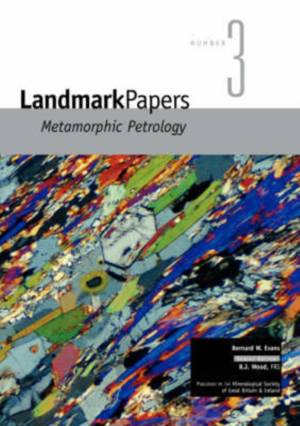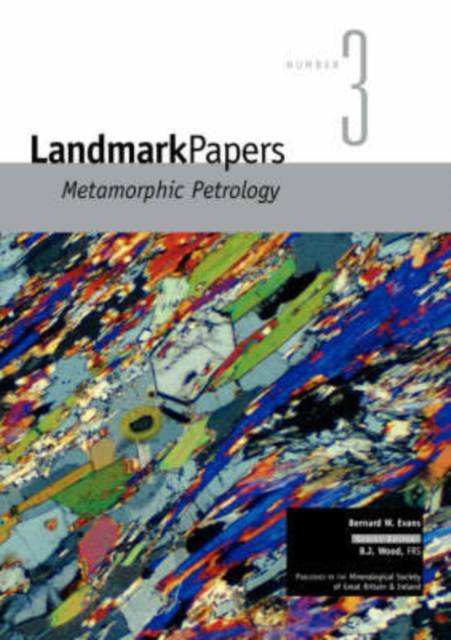
- Retrait gratuit dans votre magasin Club
- 7.000.000 titres dans notre catalogue
- Payer en toute sécurité
- Toujours un magasin près de chez vous
- Retrait gratuit dans votre magasin Club
- 7.000.0000 titres dans notre catalogue
- Payer en toute sécurité
- Toujours un magasin près de chez vous
81,45 €
+ 162 points
Description
The idea for a series of volumes dealing with the 'Landmark Papers' defining the development of different areas of our science was discussed at a meeting of the council of the Mineralogical Society of Great Britain & Ireland in 2002. Council approved the idea by reasoning "which of us would not be interested in a collection of papers illustrating the development of a branch of mineralogy?" This, the third collection of such papers has been selected by Bernard Evans of the University of Washington. Much of Earth's crust and arguably parts of its mantle are composed of rock that has undergone partial to complete textural and mineralogical reconstitution as a result of changes in conditions imposed on it. Metamorphic rocks carry a record of surface, shallow and deep geological events and processes going back to 4 Ga. Early in the last century, the descriptive science of metamorphic petrography began a gradual evolution into metamorphic petrology and petrogenesis much as we know it today. Researchers came to depend more and more on related sciences, such as thermodynamics, materials science, mineralogy, tectonophysics, and isotope geochemistry, to provide a fuller understanding of the facts coming from the field and the laboratory. Fundamental principles and procedures from these borrowed sciences helped keep metamorphic petrology moving and contributed to its endless fascination. The purpose of this Landmark series is to let students read for themselves in the original how some of the giants of the field set down their ideas. Their papers convey something that is not necessarily obvious in the summaries found in our textbooks, namely a feeling and respect for the environment of intellectual discourse in which the early thinkers worked. Many things that we consider self-evident today were not at that time part of the general scientific understanding, yet they wrote with admirable clarity and logic and made the best of what information was available.
Spécifications
Parties prenantes
- Auteur(s) :
- Editeur:
Contenu
- Nombre de pages :
- 232
- Langue:
- Anglais
- Collection :
Caractéristiques
- EAN:
- 9780903056243
- Date de parution :
- 19-06-07
- Format:
- Livre broché
- Format numérique:
- Trade paperback (VS)
- Dimensions :
- 210 mm x 297 mm
- Poids :
- 825 g

Les avis
Nous publions uniquement les avis qui respectent les conditions requises. Consultez nos conditions pour les avis.






